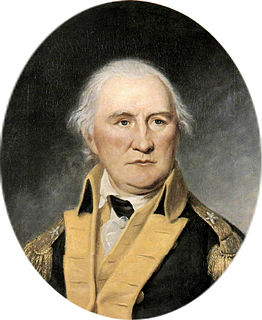A Quote by William Hazlitt
There are persons who are never easy unless they are putting your books and papers in order--that is, according to their notions of the matter--and hide things lest they should be lost, where neither the owner nor anybody else can find them. This is a sort of magpie faculty. If anything is left where you want it, it is called litter. There is a pedantry in housewifery, as well as in the gravest concerns. Abraham Tucker complained that whenever his maid servant had been in his library, he could not see comfortably to work again for several days.
Quote Topics
Abraham
According
Again
Anybody
Anybody Else
Anything
Been
Books
Comfortably
Concerns
Could
Days
Easy
Else
Faculty
Find
Had
Hide
His
Left
Lest
Library
Litter
Lost
Maid
Matter
Neither
Never
Nor
Notions
Order
Owner
Papers
Pedantry
Persons
Putting
See
Servant
Several
Should
Sort
Them
Things
Unless
Want
Well
Whenever
Work
Your
Related Quotes
In short, no association or alliance can be happy or stable without me. People can't long tolerate a ruler, nor can a master his servant, a maid her mistress, a teacher his pupil, a friend his friend nor a wife her husband, a landlord his tenant, a soldier his comrade nor a party-goer his companion, unless they sometimes have illusions about each other, make use of flattery, and have the sense to turn a blind eye and sweeten life for themselves with the honey of folly.
If one introspects and says with humility of heart: "I do not yet know the truth, but I have to find it" , then in time this humility may be rewarded and one may achieve one's ascent. If this happens, the persons attention comes into the center, neither on the left, nor on the right. That is, neither dominated by his conditionings from the past nor the orientations of his ambitious ego. Such a balanced person is very well suited for Self Realization, by which he will know the truth in its absolute form.
I read Naoko's letter again and again, and each time I read it I would be filled with the same unbearable sadness I used to feel whenever Naoko stared into my eyes. I had no way to deal with it, no place I could take it to or hide it away. Like the wind passing over my body, it had neither shape nor weight, nor could I wrap myself in it.
M. Mabeuf’s political opinion was a passionate fondness for plants, and a still greater one for books. He had, like everybody else, his termination in ist, without which nobody could have lived in those times, but he was neither a royalist, nor a Bonapartist, nor a chartist, nor an Orleanist, nor an anarchist; he was an old-bookist.
But all three of them had had to lose things in order to gain other things. Will had lost his shell and his cool and his distance, and he felt scared and vulnerable, but he got to be with Rachel; and Fiona had lost a big chunk of Marcus, and she got to stay away from the casualty ward; and Marcus had lost himself, and got to walk home from school with his shoes on.
There is no hope for the world unless and until we formulate, accept and state publicly a true moral code of individualism, based on man's inalienable right to live for himself. Neither to hurt nor to serve his brothers, but to be independent of them in his function and in his motive. Neither to sacrifice them for himself nor to sacrifice himself for them.
It would perhaps not be amiss to point out that he had always tried to be a good dog. He had tried to do all the things his MAN and his WOMAN, and most of all his BOY, had asked or expected of him. He would have died for them, if that had been required. He had never wanted to kill anybody. He had been struck by something, possibly destiny, or fate, or only a degenerative nerve disease called rabies. Free will was not a factor.
He looked at the book, took my name, and consulted his records. Then he informed me I had been lost at sea and was dead. Under the circumstances, he could not possibly give me any money... Even the fact that he was dealing with someone who had been dead for several days failed to awaken interest in his official heart.
My pulse whooshed in my ears so fast I could barely hear myself speak. “I only have—” “Two days.” He squeezed my hand. “So what? You can spend them feeling sorry for yourself, or you can let me help make them the best two days of your life, and my afterlife. So what’s it gonna be?” I stared into his eyes, like I’d never seen him before. And I hadn’t—not like this. But he’d obviously seen me, better than anyone else ever had. “Well?” Tod watched me, his hand still warm in mine. In answer, I leaned forward and kissed him again.
He ran as he'd never run before, with neither hope nor despair. He ran because the world was divided into opposites and his side had already been chosen for him, his only choice being whether or not to play his part with heart and courage. He ran because fate had placed him in a position of responsibility and he had accepted the burden. He ran because his self-respect required it. He ran because he loved his friends and this was the only thing he could do to end the madness that was killing and maiming them.




































